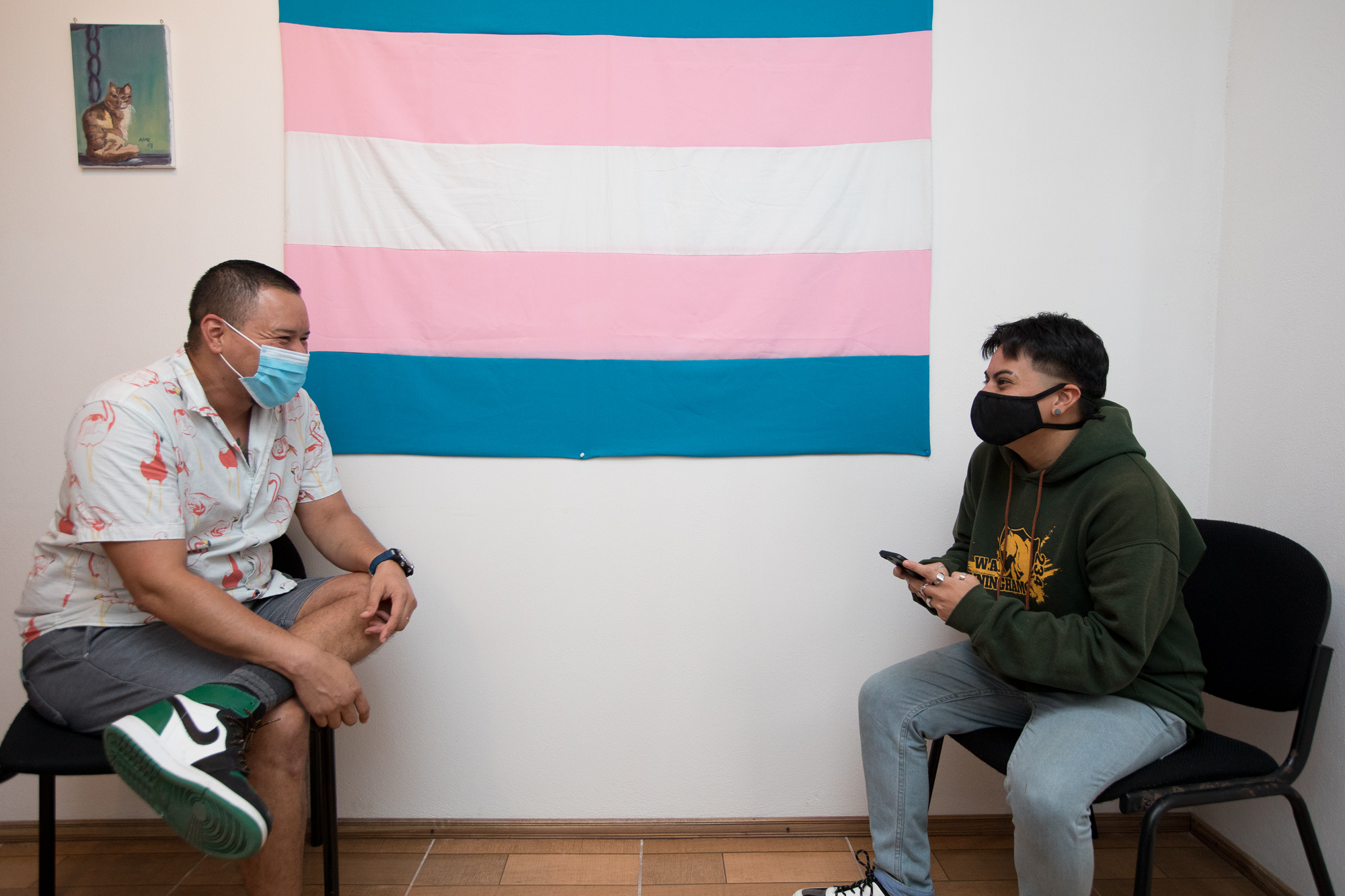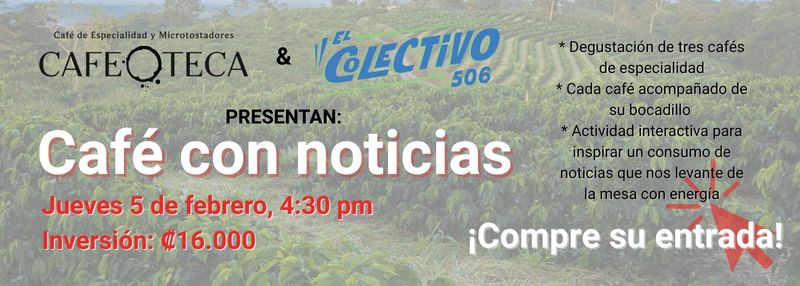Esteban Alfaro decided to make a change in his canton, Perez Zeledón, after he and his boyfriend were thrown out of a bar in 2016.
He filed a complaint seeking to demonstrate discrimination based on sexual orientation in this rural city in southern Costa Rica. He never imagined that he would end up gathering more evidence of that discrimination because of the complaint itself, and the publicity that accompanied it. Death threats against him and his family. People shouting in the street “That’s the playo who is promoting homosexuality in the canton.” A beating when leaving his job as a university professor, ending with a comment from his attacker: “That’s for being a playo.”
Today, “we might have access to all our rights,” says Esteban, referring to the implementation of marriage equality in 2020, “but the discrimination we receive on the street may not end until we implement processes to raise awareness.”
Esteban is the founder and executive director of Proyecto Somos Más, a nonprofit organization that works on public policy and governance issues in six countries in Central America and the Caribbean. He’s also an advisor to Costa Rica’s Legislative Assembly and to the Central American Integration System on issues of inclusion and youth. Through all the experience he’s accumulated, Esteban says he’s come to recognize that awareness really depends on people who are working in their own communities to generate change.
“These local collective initiatives are the fundamental tool for the recognition of rights and access to that social equality,” says Esteban. “We have organizations like Somos Más that work both nationally and regionally, but because we take on so much, our actions are less significant. That is to say, in my canton we are going to do a support group, group therapy to help people deal with social pressure and with discrimination. We’re talking to the municipal council. By being closer to the people, for me, these [actions] are much more effective.”
Various organizations of this type are working in communities around Costa Rica. El Colectivo 506 spoke with the leaders of four of them.
“It’s a race against time”—a safe space for the young LGTBIQ+ population
Shi Alarcón, the co-founder of Casa Rara, recalls that in 2015, a year before the event that Esteban experienced in Pérez Zeledón, she received a Facebook message on behalf of a young person (or “chique” as she affectionately calls them in order to use the word for young person, chico or chica, without referring to gender) asking for help. When she and Roig Brenes, the other co-founder of Casa Rara, had learned more about the case, they realized that this young person was in danger and needed to move to a new place.
At that point, Shi, Roig, and many other people from the group “People, Sexualities and Genders” had been supporting the LGTBIQ+ community in various ways for many years, from counseling to financial support and accommodation. But they decided to do something more official after another chique contacted them asking for help; they could not arrive in time to save the young person’s life.
“We understood that it’s a race against time,” says Shi, referring to how a quick reaction can prevent suicide. “We thought: we can’t wait for people to look for us. We need to make sure people know where we are. So we started thinking about what to do, because it was a lot of responsibility.”
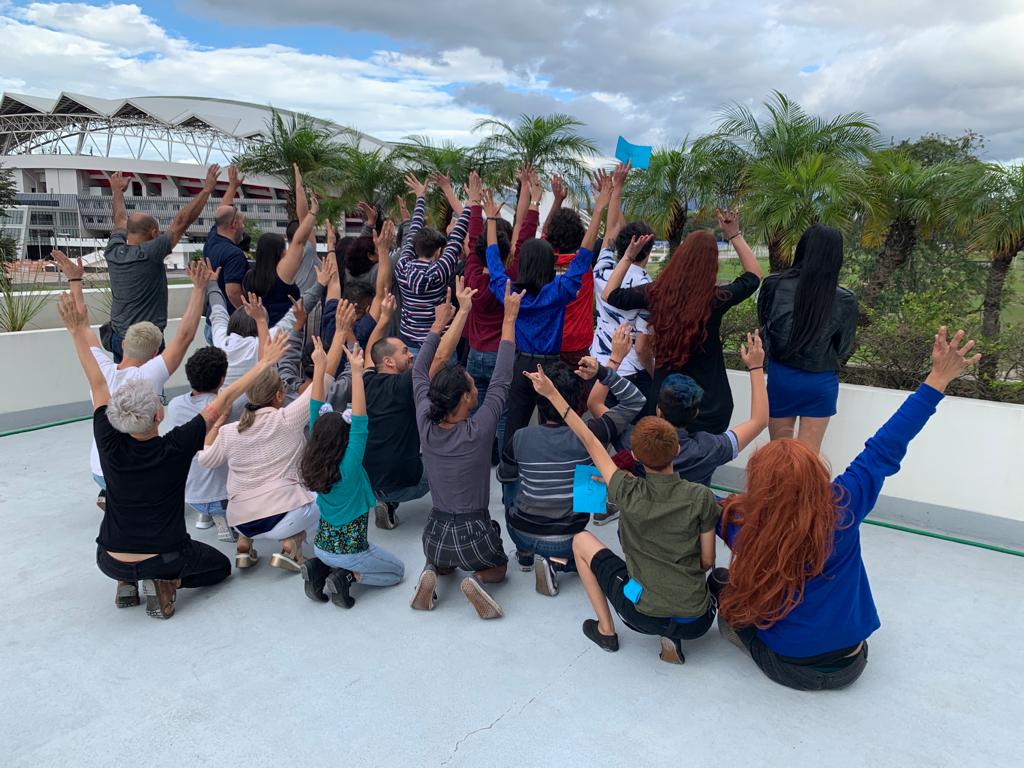
Shi and Roig spent more than a year considering this. Within a few weeks of starting the Casa Rara project in 2017, they already had seven chiques who needed a place to live. However, Shi says that along the way, they realized they need to provide more than just a safe space for these young people to live. The chiques also needed support, affection, and opportunities for discussion. “From there we started to reinvent ourselves over and over and over again,” Shi says. “And we continue that way.”
Today, Casa Rara has a house in the San José area (known as the GAM, for Greater Metropolitan Area) for people under 25 years of age. It also has offices in San José and virtual spaces, including WhatsApp (8460-4829), where they attend to inquiries and requests from the chiques who contact them.
Although Casa Rara was created to provide a safe place for young people between the ages of 15 and 25 who needed to leave their homes or communities, part of the organization’s constant transformation has led them to meet the needs of a younger and younger LGTBIQ+ population.
“The chiques we receive keep getting younger. They are not necessarily [at risk of] violence, but they need space to inform themselves,” says Shi. “They have only adult spaces, or spaces without adult supervision.” The organization has created a support group for young people under 15 years of age where, over the course of four months, they can receive training on all kinds of topics: financial education, coming out of the closet, human rights, social media. According to Shi, the population that attends the trainings fluctuates significantly, but the trainings and Casa Rara as a whole continue to pursue a central goal: “for the chiques to stop being victims and become protagonists.” Another goal is for this population to understand that their sexual orientation does not define them, she says. “Not everything is being LGTBIQ+,” Shi adds. “We can also be professionals, or athletes, or artists, or whatever.”
In terms of direct care, Casa Rara has supported 190 people, whether with psychological care, food, lodging, an education plan, or whatever “the chiques” need depending on their situation. The workshops, both those designed for people under 25 years of age and those specifically for people under 15 years of age, have drawn more than 300 people.
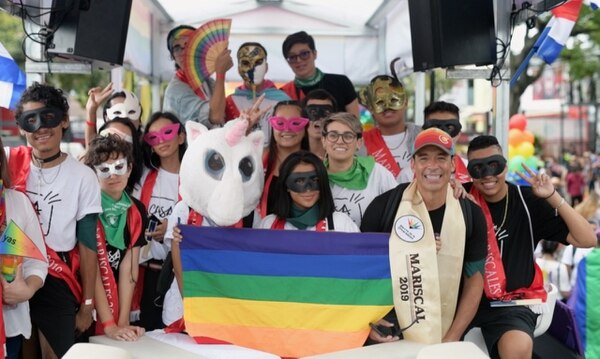
However, the requests for support have piled much higher than that, especially between the first and second electoral rounds of 2018, where fierce discussion of LGBTIQ+ rights dominated national politics and Casa Rara received more than 100 requests. Another period of intense demand has been since the pandemic began. Other peaks in applications, according to Shi, occur between Christmas and New Year’s, and during the month of June, the month of LGTBIQ+ pride. However, many of these cases, after study and analysis, are not taken on by the organization, because they do not match the goals of Casa Rara.
“My dream is to have a Casa Rara in each canton. My dream is based on the problem,” says Shi, clarifying that actually, the ultimate dream is for these safe spaces to become unnecessary because LGTBIQ+ childhood and adolescence are accepted and respected.
“The problem is that children and adolescents are not receiving LGTBIQ+ support,” adds Shi, explaining that this support is crucial for all young people, whether or not they are LGBTIQ+. “If one of their friends is, they should understand, their teachers should understand, their family should understand. They are in a hetero cis-regulated system that denies [LGBTIQ+] existence and that undermines their self-esteem.”
“There must be others out there” —a safe space for trans men
Síwo Alâr means “children of the moon” in the indigenous Bribri language, but because the moon is a feminine reference, and undergoes transformations, it is the Bribri phrase for trans men. In 2016, when four trans men created a new group to help represent them in the fight for their rights, this was the name they chose for their new organization. At first, participation was slow. It took them several months to enlist their fifth member. Today, however, Síwo Alâr has 35 active members, all trans men, two minors and the rest between 18 and 38 years old.
“Trans men had no voice. Other organizations spoke for us,” says Jean Matarrita, the organization’s co-founder and acting president, who is a teacher at the Ministry of Public Education and an artist. He and his three friends wanted to have a political impact alongside other groups that fight for the rights of the LGTBIQ+ community in Costa Rica. Although they’ve done this, they also realized along the way that the most urgent need was for peer support for trans men in the country, especially the younger ones.

This support has grown increasingly complex over the years. During the pandemic, for example, the organization has carried out five food collection campaigns to support 30 families from the LGTBIQ+ community who have lost income; they have delivered a total of 66 food packages. In addition—following in the footsteps of TRANSVIDA, another organization of trans people in Costa Rica—they started a study group in 2021 for members of the organization who wanted to finish high school. Six young people are receiving support from a volunteer teacher to prepare for their high school exams; two group members have already passed two exams.
But the main fight is still the fight for the rights of trans men.
“There is no comprehensive health for trans men [in Costa Rica],” says Jean, adding that although the Costa Rican Social Security System (Caja) has a protocol for the care of trans people, the protocol “pathologizes” trans people. Rather than focusing on support during hormone transition, it is designed to check “whether they are trans or not, or whether they have any other pathology that can be altered with hormones. I mean, they are calling us crazy,” he adds.
“When the group started, we said there: must be others out there,” recalls Jean, adding that even five years ago, there was less information available than there is today. “Now there are many young people who have a lot of access to information.” Jean began his hormonal transition at age 31, which he later complemented with a breast operation. “There is a boy in the group who started [his transition] at 12 years old,” says Jean. “How wonderful that they have access.”
In 2020, the organization received funding from the International Trans Fund, which allowed them to open an office in downtown San José and hire a part-time assistant to help people who contact the group. The money received also allowed them to buy equipment and materials to use the office as a meeting and gathering space, something that the pandemic has slowed down.

“We have managed to make the meetings virtual. Every Saturday there is a support meeting,” says Jean. However, he says that not all members are open to socializing, so they have organized a film club and a reading club. This allows some members, in small groups and following health protocols, to get together and break the ice.
The organization has formed many alliances with other transgender organizations such as the Network of American Collectives of Trans Men and gender dissident individuals assigned female at birth. Through these alliances, they have been able to offer other sources of care and support to Síwo Alâr members. For example, in 2020, the organization Hombres Trans Panamá provided them with psychological support through virtual group meetings.
In addition to the 35 active members the organization has today, Jean says Síwo Alâr has supported at least 100 other trans men who eventually decided not to participate in the group. “There are those who [after making their transition or clarifying their doubts] no longer want to know more,” says Jean. “For those who like to be in a group, there is Siwö Alâr.”
“Give me things I can say to defend him; give me weapons”—families and friends united to support the LGTBIQ + population
Peer support has been important not only for members of the sexually diverse community, but also for their family and friends. An example of this effort is GAFADIS, the Support Group for Family and Friends of Sexual Diversity Costa Rica. This organization was founded in 2015 by two psychologists who saw the need, in the people they served, to connect with other people having similar experiences. Today the family-run organization has 102 members. Although the group is completely confidential, a group of seven mothers began in 2016 to work as activists to spread the message that families do support the diverse community.
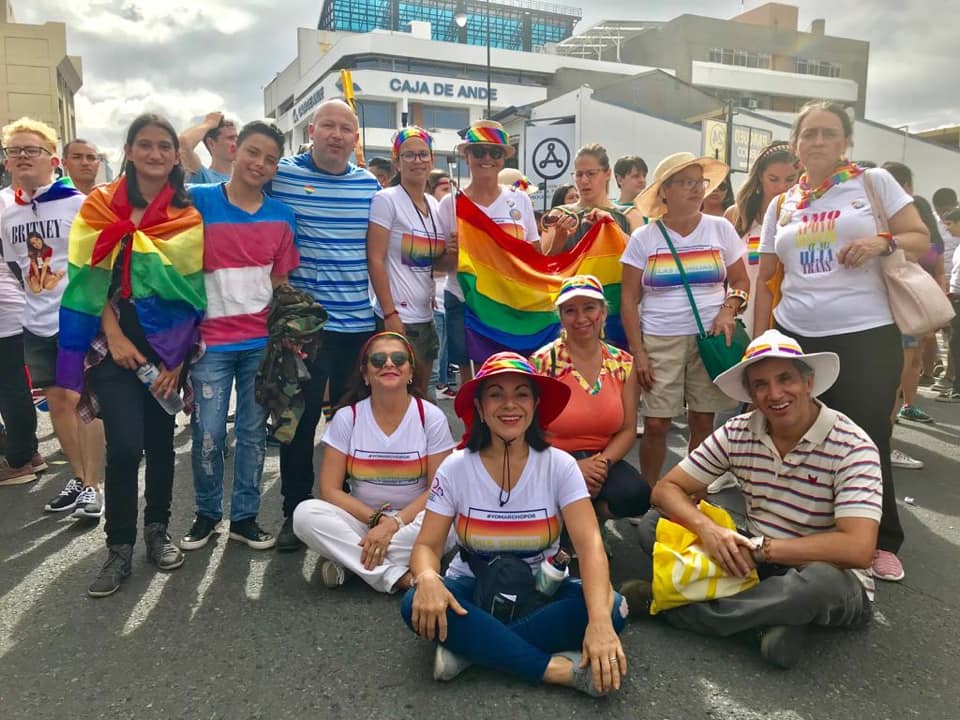
“We try to keep it safe, so that families can go through their process with peace of mind,” says Anette Jimenez, a representative for GAFADIS. During the pandemic, the group has helpd a virtual meeting on the second and fourth Saturday of each month at 3 pm; before the pandemic, they met once a month. During these meetings, in addition to creating spaces for conversation, there are talks with specialists such as psychologists, endocrinologists, or other LGTBIQ+ groups. “The idea is that people stay informed, that they always progress in knowledge, especially around our sons and daughters,” Anette adds.
Manine Arends, another GAFADIS representative, says that another mission of the organization is to provide families with a “map of organizations and allies,” referring to professionals in psychology, health and other areas such as legal support who have proven to be respectful of diversity. “No conversion therapies,” Manine adds.
“The people who come to GAFADIS are the people who, within the love they feel towards their child at that moment, need an answer to all the questions that are coming at them,” adds Anette. “The option of throwing out [the kids] is not an option.”
According to Anette, many parents want to be allies to their loved ones. “Give me things I can say to defend him; give me weapons,”, she recalls a member asking.
“I arrived very scared about the subject of suicidal ideation,” says Manine about what she feared for her son when they first came to GAFADIS. “It helped me a lot to meet many families who had gone through the same pain. The idea is that while you are solving your problems as a father or mother, you will be a support for your son or daughter.”
GAFADIS manages to “help [the family members] to lower anxiety,” says Manine.
However, the organization recognizes that although their work is very important, they wish they could have more influence. “The people who come to GAFADIS are people who somehow already accept [their diverse family members] even though they don’t understand,” says Manine. “We still have the very big challenge of how to reach people who do not support this… to be able to show the world that having a child with any of the letters does not change anything. That person is still your child. That person is still the same person he or she was before telling you” the news.

This has led to the organization’s work in activism and education. “We’ve participated [in talks] with the Ministry of Justice, in elementary and high schools, with the Caja, with companies. They have invited us to give awareness talks, and it is very interesting to see the reaction of people when we talk about our experiences,” says Edna Julia Rodríguez, another GAFADIS spokeswoman. “[Our goal] is to sensitize society as much as we can.”
“People reacted with amazement. They imagined that these people were alone,” says Anette about the experience of participating in different awareness activities. “What our gay, lesbian and trans children want is the same thing that I wanted when I got married. It’s the same thing that a woman with a boyfriend wants: a partner to pull the cart of life.”
“You are a man. Is that only because you have genitalia?” Anette remembers saying in a talk. “And if you lost them, would you stop being a man?”
“My soul needed it and the universe gave it to me” —a safe space for the LGTBIQ+ community in rural Costa Rica
Vitinia Varela and Adolfo Murillo, of Tilarán, Guanacaste, have been married for 39 years. In 2019 they participated in the Sí Acepto Campaign (the phrase means both “I Do,” as in a wedding ceremony, and “I Accept”) with a video in which they announced their acceptance of their lesbian daughter.
They went viral.
Vitinia had been participating in GAFADIS for a few years, but when she became a public figure, she and her husband Adolfo decided to create a space like that in their hometown. At the end of 2019, together with their daughter Ana María Murillo, they founded Amor a la diversidad de Tila (short for Tilarán).
“I had the idea, but I didn’t dare,” Vitinia says about creating this support group. “With the Sí Acepto campaign we were already visible. We wanted to be visible to the young person at home, who is in fear, or that mother who, like me, may not be able to travel to San José” for support.
“The funny and beautiful thing is that we have more people in the [LGTBIQ+] community than parents, but I am not losing faith,” she added, explaining that there are only three more mothers in the group.
Today, the group has 30 active members from all over Costa Rica, most of whom participate in the organization’s biweekly virtual meetings. The meetings offer space for conversation, and also have a guest speaker to share expertise.
In addition, the group has recently turned its forces towards its social networks; they have more than 1,200 followers on Facebook and about 500 on Instagram. “The group is clearly growing,” says Grace, a lesbian educator from Tilarán who is one of the group’s nine spokespeople, “and I don’t see a limit.”
The first massive event they held on their networks was on May 16th, 2021, to celebrate the International Day Against Homophobia and Transphobia. Lasting almost five hours on Facebook Live, attendance reached peaks of more than 80 people and has now been played more than 1,200 times. The event “marks a before and after,” says Mich, a group member who is a non-binary person with a degree in administration and a technology student. “We wanted to inform; we wanted to educate people, talk about inclusive language, learn stories and get involved. We did not think we were going to go so far.”

So although the organization was originally created with the goal of building a safe space for people like Vitinia and Adolfo, it has become a family and a safe place for many members of the LGTBIQ+ community, and their social networks have become a space with information and education for all.
“When I came to the group it was the first time I was able to speak in public [about my sexual orientation],” says Melania, a graphic designer originally from a very small town in Coto Brus, in southern Costa Rica, which she describes as conservative. Melania says that when she joined Amor a la Diversidad de Tila “the storm had already passed” in her own life, so she finds satisfaction in being able to support and give hope to other members of the group who are still in the storm. “My family are the only people for whom I received discrimination,” says Melania. “My story touches many people because we have many things in common.”
Paula Céspedes, a lesbian industrial engineer originally from Santa Ana, San José, says that not until she became part of the group was she able to verbalize who she is and what she feels. “In this group I found the support that I had not found at home,” she says. “It motivates me to work for this group, because my adolescence was very complicated: I was alone. If we can help people who are going through a difficult situation, I want to be there.”
“I believed that I was the only person that his parents had kicked him out of the house because of sexual orientation,” says Mich. “When I came to this group and realized that there are many people who have gone through this situation, it made me feel supported. It made me feel protected.”
Amor a la Diversidad de Tila seeks to create a safe and respectful space for LGTBIQ+ people where they can receive education, support in self-acceptance processes, “and love,” according to their leaders.
“We seek to give them the tools they need to cope with a hostile society,” says Vitinia. “The problem is that there is no education on the subject. There is no training… but there are campaigns of hate and disinformation. Since there is no information, the solution is this: to unite, accompany us and educate ourselves from love.” She remembers an event at which relatives of hers rejected her daughter: “That day I understood that she has the tools, with our love, to face this world.”
The work of keeping safe spaces safe
“I tell the people of the GAM,” says Esteban Araya of the Somos Mas Project, “you complain because a car passed by and called you a playo… [in rural areas] there are people being murdered, attacked, raped, fired from their jobs. These are very different realities from the privilege that I have as a gay man, living in the city.”
This reality is well known to all the organizations mentioned, and it is one of the reasons why they spend a lot of time caring for those who participate.
Both GAFADIS and Amor a la Diversidad de Tila have developed registration processes that include an interview or a form to help exclude people who want to come in and create disruption.
In the case of Casa Rara, Shi says that, in addition to the analysis they make of the cases to decide who they can support, they allow the participation of relatives of the chiques—under certain circumstances. When “people come with doubts, we convince them, but if not, if it is violent, we are not going to negotiate,” Shi explains. The group’s focus is on keeping the organization afloat, not exposing participants to violence.
Síwo Alâr’s leaders feel a little more protected. “Trans women don’t have a closet,” says Jean, referring to comments he has heard from trans women. “Trans men can go more unnoticed: it is a reality. When we make the transition, we access some [male] privileges.” However, they are still very wary of who they admit as members or allies.
Jean says the community has made a breakthrough that’s both “small and big” with the new legislation that allows for name changes and equal marriage. However, both Jean and the members of the other four organizations emphasize that it is “important to continue training both in the public and private sectors.”
“LGTBIQ + organizations continue to work hand-in-hand now more than ever, and we are not going to let go until we achieve all rights,” says Jean. “We are not asking for any privileges. We’re asking for the rights that anyone has, such as education, work, or going to a swimming pool. Not being discriminated against for using a certain bathroom, for looking a certain way.”


